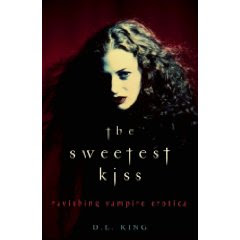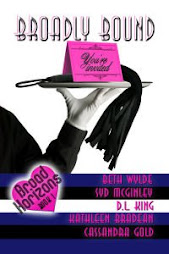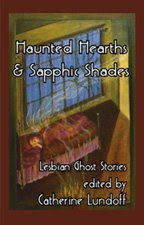As promised, let's talk dream publishers.
You may have a dream publisher in mind, but that isn't necessarily your best fit. All publishing houses have a personality. Some dominate a genre, some are known for a type of book within a genre, others are known for treating the writers they publish well - or not. How do you find out? Research.
#1 - Find a house that publishes your genre. As an extreme example, don't submit your puppy training book to a house that only publishes romance novels. Road trip! Go to your local independent bookstore and look for books like yours. What's that? No book is like yours? Yours is unique? Okay, how about this. Picture the perfect reader for your novel. What else are they reading? Who publishes it? Aha! There you go. But wait! There are nine publishers who fit that criteria? Or what if you've decided to go with an e-publisher? Time to follow steps 2 and 3. BTW - self-publishing may be your key to a good publishing experience. Many of these tips also apply.
#2 - Find books even more like yours. If you're writing science fiction horror, find who produces the dark, edgy stuff with a similar feel. At least you'll know that the editor likes it.
#3 - Find books you like the look and feel of. Check the cover art, the quality of the paper, and the binding. This seems a bit extreme, but you're not going to be happy if your book falls apart in a reader's hands. And since you'll have almost no say over the cover art (but you'll get blamed for it), if magna style twinks wit blue hair irk you, stay away from publishers who put out those kinds of covers.
#4 - With your narrowed list now in hand, check Predators and Editors online and get the scoop on the publisher. If you don't understand the issues disgruntled writers have raised, do more research and find out what it means.
#5 - If you're going with an e-publisher, check out their website to see how easy it is to buy one of their books. Does the site look professional? How long ago was it updated? Then go to Fictionwise and see if their books are listed for sale there, because most readers use Fictionwise for their e-shopping. Also check to see if the publisher has a social list where their writers post. Lurk for a while and get a feeling for the general tone. Lots of new writers? That may be a good sign, but check to make sure the writers who were working with them two years ago are still working with them. Writers who are e-published tend to be very accessible online, so don't be afraid to ask them (off-list) for their views on publishers. Many epublishers also do print books now also, but those print editions aren't always available in bookstores.
#6 - If you're going with a traditional print publisher, see how easy it is to find their books where you, and your readers, shop. Small, independent publishers have a harder time getting shelf space in bookstores, but their books are available at online bookstores. To submit to a big NY house, you may have to have an agent. Smaller presses tend to be more approachable and take bigger risks with experimental books. You're going to have to decide which is the best option for you. Unfortunately, there are so many factors involved that I can't cover it all in this post.
#7 - Join. Join writer's groups online, join writer's chats. Get out there and connect with people. The internet has been a huge boon to writers not just for the research aspects, but for the way it allows us to connect. Writing is a solitary pursuit, but it doesn't have to be isolating.
It took months to write your novel. Be patient and be be willing to invest a bit more time to make sure your book is submitted to your best fit publisher. Your ultimate goal is to be happily published - satisfied with the experience, content with the product, ready to do business with the same house.
Monday, July 13, 2009
Subscribe to:
Post Comments (Atom)















.jpg)











No comments:
Post a Comment